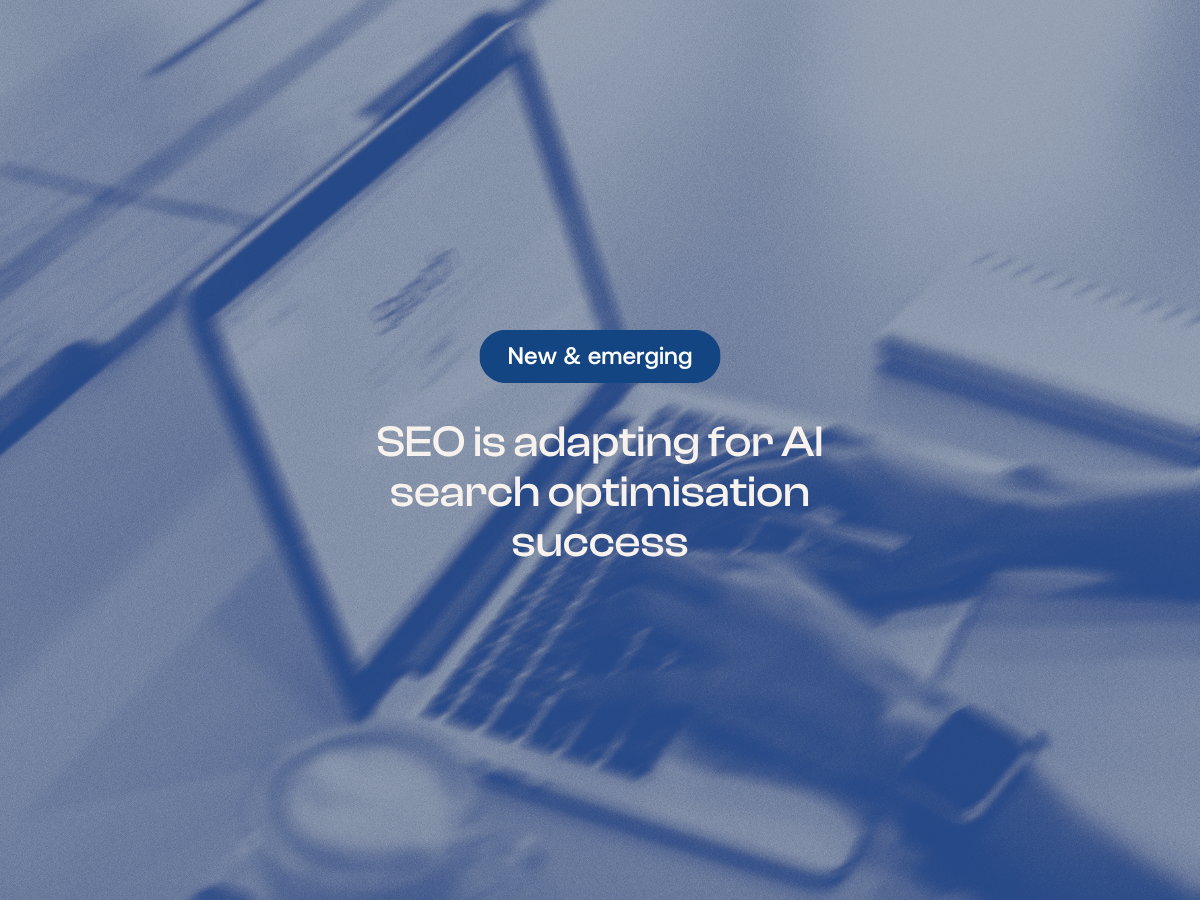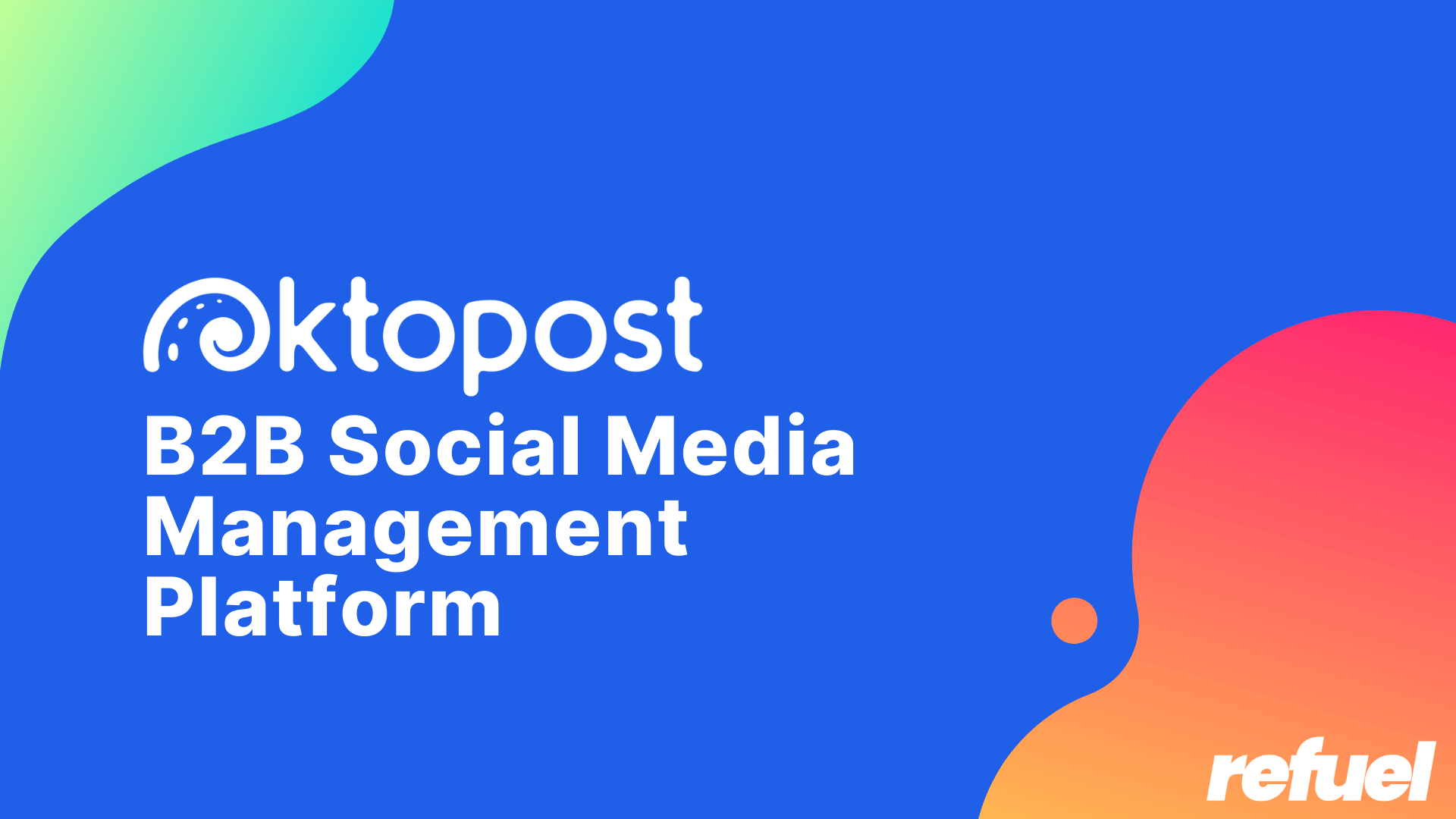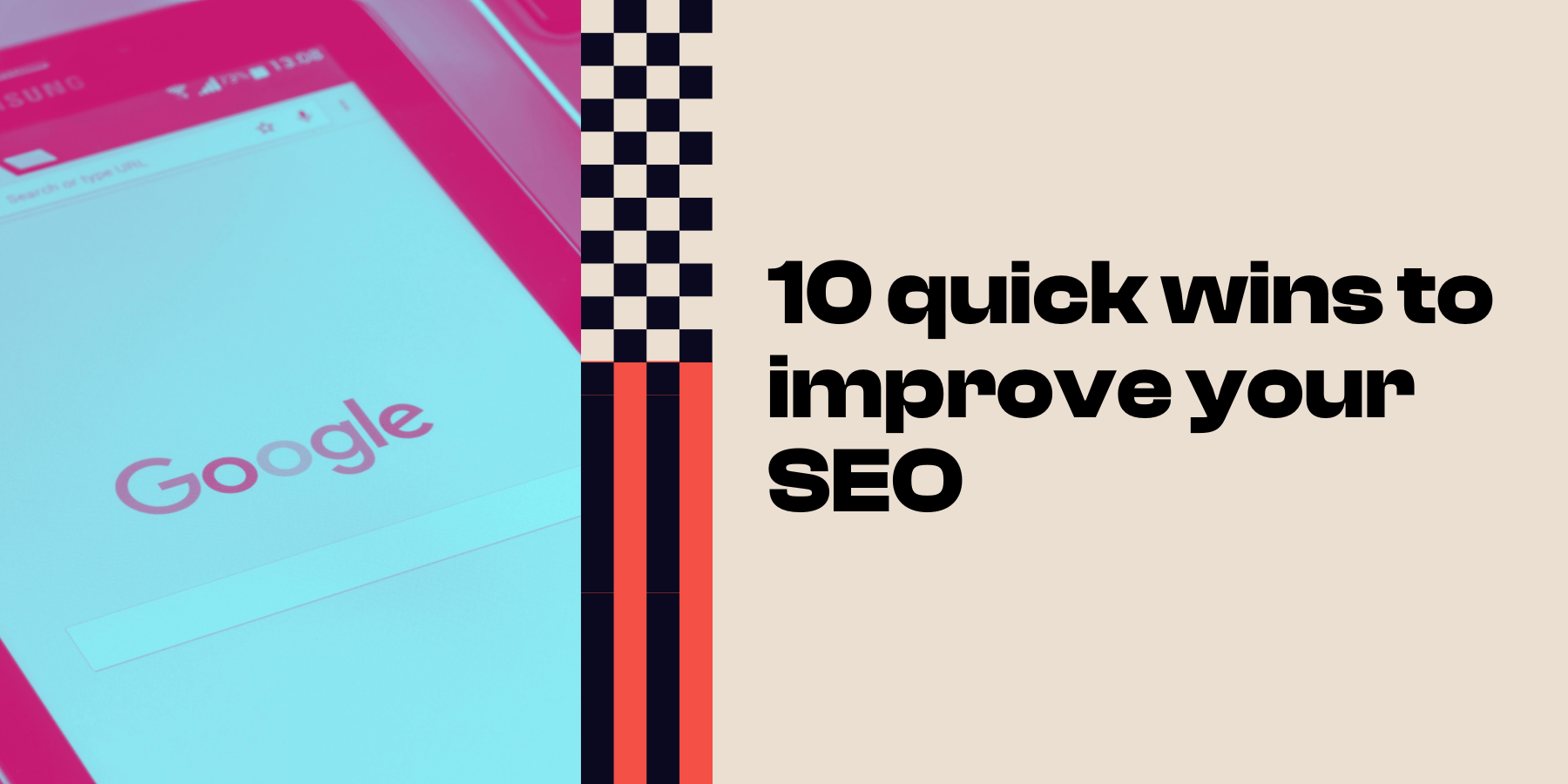The future of search: Why SEO is still your go-to search tool

Last updated: 06 June 2025
We are in the midst of a transformation, a rebirth if you will. Perhaps one to rival the birth of Google and search engine optimisation (SEO) itself... and it’s called GEO or generative engine optimisation.
Google has long been the gatekeeper of search, a part of our vernacular and fundamentally changed how people find information online. As we move into the era of AI, what may surprise you is while everyone's talking about AI replacing search engines, SEO has become more important than ever.
As a business owner you may be starting to ask yourself what role SEO has to play now that it seems everyone is using AI for their searches. But the truth is SEO is more powerful than ever. Google is still leading the charge by a long way when compared to AI platforms like ChatGPT, Perplexity and Claude.
Google's search revolution
Google has been busy lately rolling out the very latest in AI features. These recent updates weren’t just tweaks, they were a complete reimagining of how search works, and it got the internet talking.
Google AI Overviews
AI Overviews aren’t replacing the traditional search but they are expanding them. AI Overviews are now the first response you see when you do a Google search (even before sponsored ads). No longer do you get a list of blue links, you get a full AI-generated summary, complete with helpful tips and multiple sources of information. This is now where you want your business to appear.
In fact, people who use AI Overviews are actually searching more often because they're getting better, more satisfying results.
Google AI Mode
Google's AI Mode takes the AI Overview even further - it’s basically their version of ChatGPT. You can have back and forth conversations and ask follow-up questions. Early testers are asking queries 2-3 times longer than traditional searches and diving deeper into topics than ever before.
You now need to think beyond simple keywords and more into how you can capture intent and cover complete topics.
Google's not the only one
It’s not just Google that is raising the stakes with their inclusion of AI. Some other big names are bringing AI into the fold. ChatGPT may soon support in-chat purchase via Shopify. Meaning not only will you be able to search for the latest casual sneakers that are best for walking and get links to review sites and product catalogues, but you’ll be able to make purchases within ChatGPT. Yep, when you search in ChatGPT next time you could find suggested products with prices, reviews, shipping details and the all important “buy now” button. ChatGPT could literally become the next one-stop shop.
Why SEO isn't dead, it's evolved
Those that say SEO is now dead are missing the key factor in all of this - AI still needs to get its information from somewhere. Whether it's ChatGPT, Claude or Google’s AI Overviews, they are pulling information from websites across the internet. This means if you don’t make sure your content is optimised to be found and understood by AI systems, you’re making it harder for AI search to find you.
Traditional SEO optimises your content for search engine crawlers so you can be found in search engines. Now you need to optimise for AI systems that are crawling for content that answers user questions.
The new SEO priorities
- Content quality over keyword density: AI systems can understand context and meaning, not just keyword matching
- Comprehensive topic coverage: Answer the full question, not just part of it
- Structured data: Help AI understand exactly what your content contains
- Authority and trustworthiness: AI systems favour content from credible sources
Enter GEO: Generative Engine Optimisation
While traditional SEO focuses on ranking in search results, Generative Engine Optimisation (GEO) focuses on getting your content cited and referenced by AI systems when they generate responses.
What is GEO?
GEO is all about optimising your content so that AI-powered tools like ChatGPT will cite your content when answering user questions. It's all about becoming the go-to source that AI relies on for accurate, comprehensive information in your niche.
Why GEO matters now
Given Google’s AI Overview features first, this is where you want to be. To have the best chance of being featured in a response when someone asks, “Who are the top Google Ad agencies in Adelaide, South Australia?” or “What is the best way for my business to be listed in searches in ChatGPT?” you need to make sure your content is optimised for GEO. AI generates answers based on its training data and real-time web searches.
Your complete SEO and GEO checklist
Here's your step-by-step action plan to make sure your SEO and GEO ready:
Traditional SEO foundations
- Ensure fast loading speeds (under 3 seconds)
- Mobile-friendly design that works on all devices
- Clean, crawlable site structure
- HTTPS security
- Fix all 404 errors
- Write comprehensive, authoritative content
- Use clear headings (H1, H2, H3 structure)
- Include relevant keywords naturally
- Add alt text to all images
- Create unique meta descriptions
- Local SEO (if applicable)
- Keep Google My Business profile updated
- Consistent NAP (Name, Address, Phone) across all platforms
- Gather authentic customer reviews
- Optimise for local search terms
GEO optimisation strategies
- Create AI-friendly content structure
- Use FAQ sections on key pages to directly answer common questions
- Include clear and concise summaries at the start of long articles
- Have step-by-step instructions and numbered lists
- Create comprehensive guides on key topics to help be seen as an industry leader
- Implement advanced structured data
- Use schema markup for articles, FAQs and how-to content
- Include an “About the Author” section including their expert credentials
- Mark up important facts and statistics clearly
- Use JSON-LD format to help AI extract the data
- Build topical authority
- Talk about topics in-depth, not just surface-level
- Create content clusters around main themes
- Link related content together logically
- Regularly update and refresh existing content
- Optimise for citation and attribution
- Include clear author bios with their credentials
- Add the date you publish blogs and articles
- Have source citations for statistics and facts so AI knows where your information comes from
- Create shareable and quotable insights about topics you talk about
Advanced tactics for AI-powered search
- Conversational content optimisation
- Write content that answers follow-up questions people ask. You almost want to predict what people will ask and have the answer already
- Use natural language patterns to help AI understand what the content is about
- Include context and background information
- Address related topics users might explore
- Multi-modal content strategy
- Combine text with relevant images and videos
- Create infographics that summarise key points
- Use charts and graphs for data visualisation
- Ensure all visual content has descriptive text
- Authority building for AI trust
- Publish regularly on your areas of expertise
- Work on getting mentioned and linked by other trusted sites
- Participate in industry discussions and forums
- Create original research and studies
How to measure success
The traditional ways of measuring success, like keyword rankings, still apply but you now need to include other metrics to measure the success of GEO and AI searches.
Traditional SEO metrics
- Organic traffic growth
- Keyword ranking improvements
- Click-through rates from search results
- Time on page and engagement metrics
GEO and AI search metrics
- Brand mentions in AI-generated responses
- Traffic from AI-powered search features
- Increase in direct traffic (people finding you through AI recommendations)
- Growth in "brand + question" type searches
Tools to track your progress
- Google Search Console for traditional SEO performance
- Brand monitoring tools to track AI citations
- Analytics to measure traffic from AI-powered sources
- Regular manual testing of AI tools with your target queries
Your SEO and GEO action plan
The future of search isn't about choosing between traditional SEO and optimising for AI. To be found, you want to be across both. And this isn’t difficult to do.
We’ve put together an action plan so you know what to focus on first.
Immediate actions (next 30 days)
- Audit your current content for AI-friendliness
- Add FAQ sections with commonly asked questions to key pages
- Implement structured data markup
- Ensure author bios and credentials on are on relevant pages
- Use AI and ask questions where you would hope to appear and see what comes up… if at all
- Ask AI about your business and see how your business is currently referenced
Medium-term strategy (next 3 months)
- Create comprehensive topic clusters
- Develop original research and insights
- Build relationships with industry publications
- Optimise all content for both traditional and AI search
- Start tracking new metrics and citations
Long-term approach (ongoing)
- Continuously monitor AI developments
- Regularly update and refresh content
- Build topical authority in your niche
- Experiment with new content formats
- Stay ahead of algorithm changes
Start to dominate the future of search
The way we search and the tools that provide the answers may have changed recently but with the right strategy, you can ensure your business is found wherever your customers are looking, whether that's Google search results, AI Overviews or the next generation of search tools we haven't even imagined yet.
Want to see how your business measures up? We can audit your current SEO and GEO readiness, identify opportunities and create a custom strategy that sets you to win in both traditional and AI-powered search.






